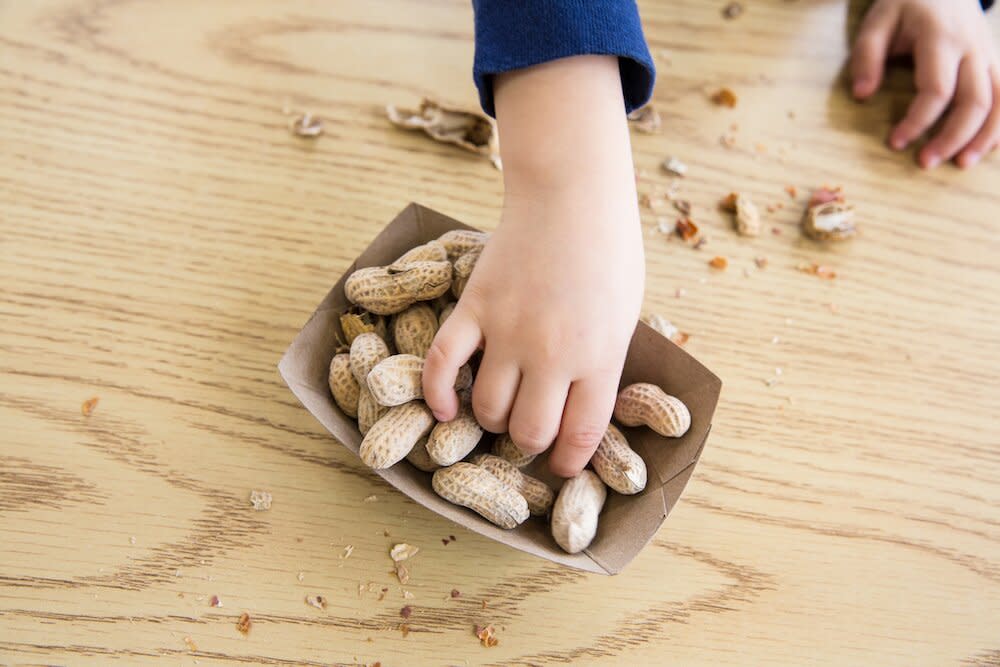What to Do If You Eat Something You're Allergic To

Michelle Gibson / Getty Images
Having an allergic reaction is no fun. At the very least, an allergic reaction can lead to uncomfortable itching, swelling, and hours spent bent over in a bathroom—and we don't have to tell you that at its worst, an allergic reaction can be fatal. That's just one very good reason most of people are allergy tested as infants—it's not a surprise you want as an adult.
The most common food allergens are to peanuts, tree nuts, milk, eggs, wheat, soy, fish, and shellfish, says Brigitte Zeitlin, M.P.H., R.D., C.D.N. And while those may be easy to avoid in our own kitchens, eating at a restaurant—or even at a friend's house—can have dangerous consequences if we're not fully aware of what's on or in the menu. It's also possible to develop new allergies as we age, leading us to eat a dangerous food we thought was safe.
If you're experiencing nasal congestion, an itchy throat, skin redness or swelling, eczema, hives, nausea, cramping or discomfort after eating something—up to six hours after eating, in fact—Zeitlin says it's likely you're having an allergic reaction. Here's what to do next.
1. Stop eating when allergy symptoms start.
If a nefarious peanut makes its way into your supposedly peanut-less pad thai, stop eating those noodles stat, Zeitlin instructs, and start paying attention to your symptoms. Itchy, scratchy throat, redness, and even slight swelling can be cured with an antihistamine, such as Benadryl or Zyrtec. But if your symptoms worsen—think: you can't breathe—skip immediately to step number five.
2. Get to the bathroom.
As if the itching and swelling weren't bad enough, an allergic reaction often also comes with another unpleasant consequence: diarrhea. If you begin to experience cramps, Zeitlin says you should head to the nearest bathroom or, if you can make it, to your home. After all, you might be in the bathroom a while—it just depends how much of the food you ate. Contrary to common sense, Zeitlin recommends that you don't take an anti-diarrhea medication. "It's in your body's best interest to get it all out," unpleasant as that may be, she says.
3. Keep yourself hydrated.
"While your body is purging the allergen food from it is system, the best thing you can do is drink plenty of fluids," Zeitlin says. Water is always a good idea, but you can also sip on low calorie sports drinks to replenish the electrolytes you're likely losing, Zeitlin says. "We lose a lot of hydration from diarrhea and vomiting and can become fatigued," she explains, "so drinking beverages with electrolytes helps keep our bodies healthy while rid the allergy."
4. Eat foods that will help you recover.
Once you are ready to eat again, you should choose foods that will promote gut healing and reduce inflammation, Zeitlin says. Luckily, that's a long, yummy list: Greek yogurt sprinkled with chia seeds, avocado, almonds—if you're not allergic to them—brown rice, whole grain bread, berries, apples, bananas, or green tea with a pinch of cinnamon, will all do the trick.
5. Get to the hospital if it's serious.
If you have a severe allergic reaction—see step number one for symptoms—then grab your EpiPen and get yourself to the nearest hospital or urgent care center, Zeitlin advises. You'll need to "tell the nurse about your allergy and how you were contaminated," she says, to get the most effective treatment. If you don't know, you can work with the doctor to determine whether you've developed a new allergy and whether you require additional medical tests.

